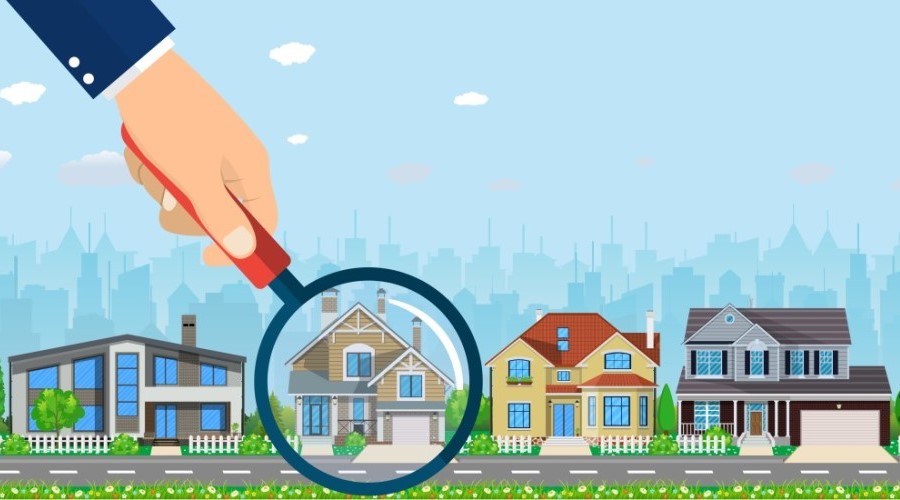savannahmaxie
savannahmaxie
Leasehold Vs Freehold

Before purchasing a residential or commercial property in the UK, comprehending the kind of residential or commercial property ownership – whether it’s freehold or leasehold – is essential. These terms may sound like legal lingo, however they can impact your responsibilities, expenditures and long-term plans.
In this guide, we’ll look into the nuts and bolts of freehold and leasehold residential or commercial properties, so you don’t need to. We’ll explore everything from what they indicate, their benefits to how they vary in terms of expenses, resale worth and legalities.
What is a freehold?
In simple terms, if you own a residential or on a freehold basis, you own the structure and the land it sits on. There’s no time limit on your ownership, and it’s all yours.
Responsibilities of a freeholder
Being a freeholder features amazing perks! You’re basically the captain of your residential or commercial property ship which means you are accountable for the maintenance of the residential or commercial property and the land. You also have the freedom to make upgrades to your pad without requiring authorization from a landlord. It’s your space to shine!
What is a leasehold?
Having a leasehold implies you own the residential or commercial property however not the land it’s built on. You have a lease with the freeholder (typically a ‘property owner’) for a variety of years, years or even centuries. The length of the lease is very important, as it can affect your ability to offer the residential or commercial property in the future.
Responsibilities of a leaseholder
As a leaseholder, you may have to pay ground rent to the freeholder, along with other charges like service charge for upkeep of typical areas. You may be limited in what modifications you can make to your home.
Kinds of leasehold residential or commercial properties
Typically, flats and maisonettes are sold as leasehold residential or commercial properties. Some homes can likewise be leasehold, normally through shared ownership schemes. But make sure to examine the length of the lease when thinking about these types of residential or commercial properties.
Differences in between freehold and leasehold
Ownership of land – in freehold, you own the land, whereas in leasehold, the land comes from another person. This difference is among the primary differences and frequently a game-changer for numerous homebuyers.
Duration of ownership – picture freehold ownership as an endless experience; it continues. But when you opt for a leasehold, it’s more like a Netflix subscription; you’ve got it for a particular time, which will be specified in your lease agreement.
Costs involved – leasehold homes frequently come with additional expenses, like service charges and ground rent. These can be things like repeating expenses that pop up each year or bi-annually. It’s possible that they might even sneak up with time.
Resale worth – a freehold residential or commercial property normally has a higher resale value compared to a leasehold with a brief lease. The much shorter the lease, the harder it may be to offer the residential or commercial property or secure a mortgage.
Buying a freehold share
If you’re a leaseholder, you have the choice to purchase a share of the freehold. This process is referred to as ‘enfranchisement’ and it indicates you have more control over the residential or commercial property.
Remember – you’ll need a minimum of half of the leaseholders in the structure to accept purchase a share. This can be a complex process including legal costs, so it’s important to speak with the experts.
Alternative choices: commonhold residential or commercial properties
Ever heard of commonhold? It’s a kind of residential or commercial property ownership where you and your fellow property owners each own your own little piece of the pie, which could be a cosy flat in a building for instance. The only difference here is that you all come together as a team to own and look after the shared locations.
Consider it as a more democratic way of living. And guess what? There’s no property owner in the picture! It’s all about property owners working together to keep things running smoothly. This principle is reasonably new in the UK, but it’s getting steam bit by bit.
Extending the lease on a leasehold residential or commercial property
If you own a leasehold residential or commercial property, you can extend the lease at any time. However, as soon as you have actually owned your home for two years, you have the legal right to extend your lease by 90 years. The expense for this can vary and is subject to settlement with the freeholder.
It is necessary to start this procedure well before your lease goes out to avoid any issues or greater expenses.
Should I buy a leasehold or freehold residential or commercial property?
So, now that you understand the difference between freehold and leasehold residential or commercial properties when buying a home in the UK – which one is the one for you? Let’s have a look at a few of the main pros and cons to get a better picture.
Advantages of owning a freehold residential or commercial property
No lease to go out: among the most considerable advantages is that you do not need to stress over the lease going out, as you own the residential or commercial property outright.
No ground lease or service charges: freeholders do not need to pay additional costs like ground rent or service fee, which can add up with time.
Full control: you have complete control over the residential or commercial property, enabling you to make any modifications or enhancements without requiring approval.
Potentially much easier resale: In most cases, it’s easier to sell a freehold as there is no lease that can impact asking price and mortgage rates.
Disadvantages of owning a freehold residential or commercial property
Typically more costly: as you’re buying the whole package, freeholds are generally more expensive than leaseholds to buy.
More responsibility: When you’re the freeholder, you’re accountable for any maintenance or development expenses for the residential or commercial property.
Advantages of owning a leasehold residential or commercial property
Typically less expensive: You’ll discover that freehold residential or commercial properties are generally less expensive to purchase than leasehold residential or commercial properties.
No obligation for maintenance of the structure: General maintenance is the obligation of the freeholder.
No responsibility for upkeep of communal centers: Any work required for the common facilities falls within the responsibility of the freeholder.
Disadvantages of owning a leasehold residential or commercial property
Limited ownership: As a leaseholder, you don’t have the same ownership rights and options as the freeholder. You’re efficiently leasing from them.
Lease can diminish: While many leases are long, it’s possible for them to run down. They can be restored, however at an additional cost.
May need to pay ground lease and service charge: You may require to pay the freeholder service charges as a leaseholder.
Require permission to make changes: As a leaseholder, you may need to seek the composed permission of the freeholder before making changes to the residential or commercial property.
Can be harder to sell: Generally speaking, the closer a leasehold is to diminishing, the harder a sale can be for a leaseholder.
While both have their benefits and drawbacks, consider the reality that your option will depend upon your long-lasting strategies, financial situation and the type of residential or commercial property you’ve got your eyes on. It’s constantly a good idea to get assistance from legal consultants and the residential or commercial property pros so that you can be confident you’ve made the smartest choice.




